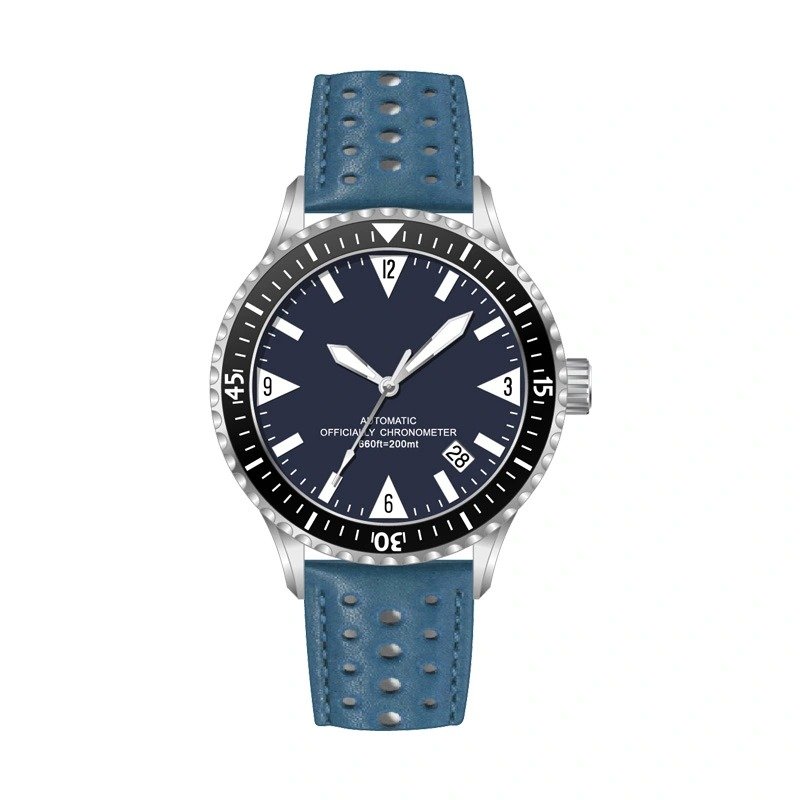Introduction: The Journey of Timepieces
The journey of a watch from factory to market is a fascinating tale of precision, craftsmanship, and global trade. In a world increasingly focused on instant gratification, the intricate process of watch production stands as a testament to the dedication and skill required to create a high-quality timepiece. This article Learn more about explores the stages of watch production, the export processes that follow, and the commitment to excellence that drives leading manufacturers in the industry.
As consumer preferences evolve, so do the strategies employed by watch manufacturers. The demand for high-quality, durable, and stylish watches continues to grow, pushing manufacturers to innovate while maintaining their commitment to craftsmanship. Understanding the complexities of watch production and export is essential for appreciating the timepieces that adorn wrists worldwide.
Craftsmanship: The Foundation of Quality
At the heart of exceptional watch production lies the craftsmanship of skilled artisans. Each watch is a culmination of meticulous work, where every component, from the movement to the casing, is crafted with precision. Leading manufacturers employ skilled watchmakers who blend traditional techniques with modern technology to ensure that each timepiece meets the highest standards.
Craftsmanship in watchmaking is not just about assembly; it involves a deep understanding of mechanics and design. Skilled artisans spend years honing their craft, learning the nuances of movement assembly, hand-finishing, and quality control. This dedication to detail ensures that every watch is not just a tool for measuring time but a piece of art that reflects the brand’s heritage and values.
Advanced Manufacturing Techniques
While traditional craftsmanship remains crucial, advancements in manufacturing technology have transformed the watch production landscape. Leading manufacturers now incorporate cutting-edge techniques such as Computer-Aided Design (CAD) and Computer Numerical Control (CNC) machining. These technologies enhance precision and efficiency, allowing for intricate designs and complex movements to be produced with minimal errors.
CNC machines, for example, can create components with exceptional accuracy, reducing the time needed for manual adjustments. This not only streamlines the manufacturing process but also ensures consistent quality across production batches. By integrating advanced technology into their operations, manufacturers can maintain their commitment to quality while meeting the growing demands of global markets.
Quality Control: A Non-Negotiable Standard
In the watch industry, quality control is not just an option; it is a necessity. Leading manufacturers implement rigorous quality assurance protocols throughout the production process to ensure that each timepiece meets exacting standards. This includes testing movements for accuracy, examining materials for durability, and conducting inspections at various stages of assembly.
Quality control is essential for building trust with consumers, especially in a market where counterfeit products abound. By maintaining stringent quality standards, manufacturers can ensure that their watches not only function reliably but also retain their aesthetic appeal over time. This commitment to quality ultimately reinforces brand loyalty and enhances the manufacturer’s reputation in the global market.
The Export Process: Navigating Global Markets
Once production is complete, the next critical step is exporting the watches to global markets. Leading manufacturers understand the complexities of international trade and work diligently to navigate the regulatory, logistical, and cultural challenges associated with exporting their products.
An effective export strategy involves establishing partnerships with trusted logistics providers to ensure timely and secure delivery of products. Additionally, manufacturers must be familiar with import regulations and tariffs in various countries, which can significantly impact pricing and market access. By staying informed about international trade agreements and regulations, manufacturers can optimize their export processes and enhance their competitiveness.
Marketing Strategies: Connecting with Global Consumers
Effective marketing is essential for successfully introducing watches to global markets. Leading manufacturers employ comprehensive marketing strategies that highlight their craftsmanship, quality, and unique selling propositions. This includes leveraging digital platforms, social media, and influencer partnerships to reach target audiences and build brand awareness.
Participating in international watch fairs and exhibitions is another vital aspect of marketing. These events provide manufacturers with opportunities to showcase their latest collections, network with industry professionals, and engage with potential customers. By creating a compelling narrative around their brand, manufacturers can effectively connect with consumers, fostering loyalty and driving sales.
Sustainability: A Commitment to Responsible Practices
As consumers become more conscious of environmental and ethical issues, sustainability has emerged as a critical focus for watch manufacturers. Leading brands are increasingly adopting eco-friendly practices throughout their production and export processes. This commitment to sustainability not only addresses consumer concerns but also enhances the brand’s reputation in a competitive market.
From sourcing sustainable materials to implementing energy-efficient manufacturing techniques, high-quality watch manufacturers are taking significant steps toward reducing their environmental footprint. Many brands are also exploring ways to promote circular economy practices, such as encouraging recycling and offering repair services. By prioritizing sustainability, manufacturers can appeal to environmentally conscious consumers and contribute positively to global challenges.
Conclusion
The journey of a watch from factory to market is a complex yet rewarding process that requires dedication, skill, and innovation. Leading manufacturers understand that excellence in production and export is essential for meeting the demands of discerning consumers worldwide. By emphasizing craftsmanship, incorporating advanced technology, and maintaining rigorous quality control, these brands create timepieces that stand the test of time.
As the global market for watches continues to expand, the commitment to sustainability and responsible practices will only become more important. Manufacturers who prioritize these values will not only enhance their brand reputation but also contribute positively to the industry and society at large.
In conclusion, the world of watch production and export is a testament to the artistry and engineering that goes into creating high-quality timepieces. By navigating the complexities of international trade and staying attuned to consumer preferences, leading manufacturers will continue to thrive in this dynamic landscape, delivering excellence from factory to market. As consumers increasingly seek products that reflect their values and aspirations, the future of watch manufacturing looks brighter than ever.



